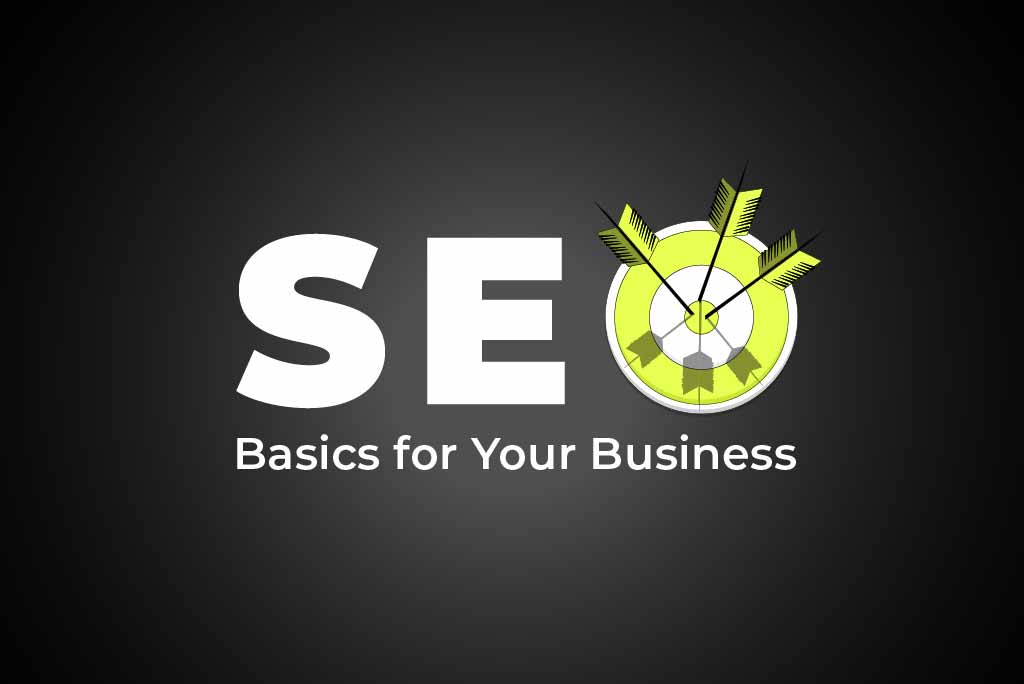Search engine optimisation (SEO) is a term you’ve probably heard a lot, but what exactly is it, and why does it matter for your business? In simple terms, SEO is the process of improving your website to help it rank higher on Google and other search engines. SEO increases visibility and draws traffic to your business through “organic” ranking, meaning that you don’t have to pay to be in that space — this differentiates it from paid advertising.
Why Is It Important To Optimise Your Website?
To say the online market is competitive is an understatement. Attention is the name of the game, and businesses live or die depending on how much attention they get. In the last decade, we have witnessed growing numbers of consumers abandon the shops in the local high street for the goods and services available in the online space, and it is estimated that by 2040, 95% of all purchases will be made online.
In a highly competitive environment, your business needs to be easily found online — and search engine optimisation can assist you with that. Following SEO best practices can help you improve your website’s visibility and increase the quantity and quality of organic traffic from search engines. As a result, SEO contributes to raising brand awareness, generating leads and increasing sales.
SEO Techniques in a Nutshell
Now, let’s take a look at four aspects of search engine optimisation: keyword research, on-page SEO, technical SEO and link building.
Keyword Research
Keyword research is the process of identifying and analysing keywords and phrases that people are searching for in search engines in order to optimise a website and its content for those keywords. The goal of SEO keyword research is to identify high-traffic, high-converting keywords that align with a website’s products or services. This can help a website rank higher in search engine results pages (SERPs) for those keywords, which can ultimately drive more traffic and leads to a website. Some common tools used for keyword research include Ahrefs, Semrush and Moz Keyword Explorer.
There are several factors to take into account when determining the keywords you want to target on your website:
- Relevance: The keywords you choose should be relevant to the products or services that your website offers.
- Search volume: You should target keywords that have a high search volume, as these keywords will have more potential to drive traffic to your website.
- Competition: You should consider the level of competition for the keywords you want to target. If the competition is too high, it may be difficult to rank for that keyword.
- Seasonality: Some keywords may have a high search volume only in certain seasons; you should consider this while choosing keywords.
- Long-tail keywords: Long-tail keywords are longer and more specific phrases that usually have lower search volume but higher conversion rates.
- Local keywords: If your business is location-based, it is important to include local keywords in your strategy.
On-Page SEO
On-page SEO refers to the optimisation of individual web pages to rank higher on search engines. The most important factors of on-page SEO include:
- Content: The content of your web pages should be high-quality, unique and relevant to the keywords you are targeting.
- Title tags and meta descriptions: These tags provide search engines with information about the content of your web pages and should be optimised for your target keywords.
- Headings and subheadings: Use headings and subheadings to organise the content of your web pages and make it easy for both users and search engines to understand the main topics and subtopics.
- URL structure: The URLs of your web pages should be clean and descriptive, including the keywords you are targeting.
- Internal linking: Internal linking is the process of linking pages within the same website. Use internal links to connect your web pages and help search engines understand the structure of your website.
- Alt text: Alt text is used to describe images and other non-text elements on your web pages. Alt text serves as a fallback for users who cannot view images due to slow internet connections, technical issues or visual impairments. It is also used by search engines to understand the content of an image. Alt text should be concise and descriptive. Using alt text for all images that are not purely decorative is key to improving on-page image SEO.
- Schema markup: Schema markup is a code that you can add to your website to help search engines understand the content of your web pages more effectively.
Technical SEO
Technical SEO refers to the optimisation of the technical aspects of a website, such as its code and structure, to improve its accessibility, visibility and ranking in search engine results pages. The most important technical SEO factors include:
- Crawlability: Search engines need to be able to crawl and index your website to understand its content and determine its relevance to specific keywords. Make sure your website is crawlable by including a sitemap and submitting it to search engines.
- Site speed and performance: A slow-loading website can negatively impact your search engine rankings. Optimise your website’s speed and performance by compressing images, minifying code, enabling caching and using a content delivery network (CDN).
- Mobile optimisation: With the increasing number of mobile users, mobile optimisation has become an essential part of technical SEO. Your website should be optimised for mobile devices, with a responsive design and fast loading times.
- Redirects: Properly handling redirects can help to maintain search engine rankings and user experience when a URL changes. Use 301 redirects for permanent redirects and 302 redirects for temporary redirects.
- Robots.txt: Use a robots.txt file to tell search engines which pages or sections of your site should not be crawled.
- XML sitemaps: Submitting an XML sitemap to search engines can help them understand the structure of your website and find new pages more easily.
- Security: Implementing an SSL certificate to encrypt your website will help to protect user data and enhance your website’s security.
Link Building
Link building is the process of acquiring hyperlinks from other websites to your website. It is an important aspect of SEO, as search engines use links as one of the factors to determine the authority and relevance of a website. Overall, link building is a long-term process that requires patience, persistence and a commitment to creating high-quality content.
Here are some best practices for link building:
- High-quality content creation: Creating high-quality, relevant and valuable content is the foundation of any effective link building strategy. People are more likely to link to your website if your content provides value to their audience.
- Identification of relevant websites: You should identify websites that are relevant to your industry or niche and have a good reputation. You can use tools such as Ahrefs or Semrush to find potential link-building opportunities.
- Outreach: You can reach out to website owners and publishers to request a link. The best way to do this is by personalising your email and explaining why your content would be valuable to their audience.
- Guest posting: Guest posting is a common link-building tactic where you create content for another website in exchange for a link back to your website. You should only guest post on relevant and high-quality websites.
- Broken link building: Broken link building is the process of finding broken links on other websites and offering a replacement link to your own website. This tactic can be effective because website owners appreciate having broken links fixed.
- Backlink monitoring: You should regularly monitor your backlinks to ensure they are active and relevant. If you notice any low-quality or spammy links, you should disavow them to avoid any negative impact on your SEO.
Summary
SEO is an essential component of any digital marketing strategy, as it can help you reach a wider audience, establish credibility and trust, and drive sustainable growth for your business. SEO helps your website rank higher in search engine results pages, which leads to more visibility and clicks from potential customers. SEO can also help you ensure visitors have a positive experience on your site, leading to more engagement, conversions and repeat business.
Altlier is a web design and digital marketing agency. Our team builds SEO-optimised websites and provides website redesign and SEO services. To see how we can help your business, check out our services page or get in touch with us.



